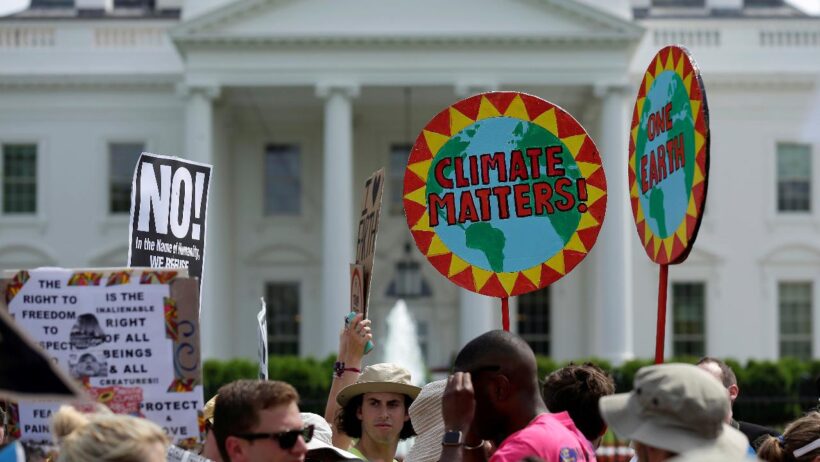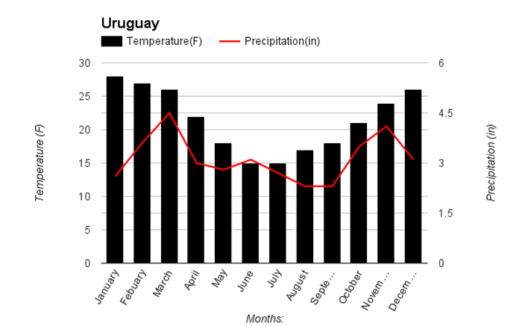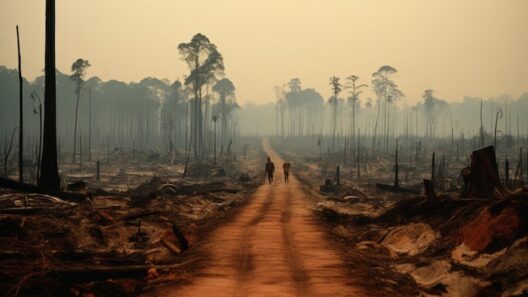Global warming, a term often begrudgingly mentioned in political discourse and popular media, has increasingly morphed into a multifaceted global crisis that transcends geographical boundaries. While the effects of climate change are profoundly felt in the United States, the implications of a warming planet are starkly universal. A thorough examination reveals that global warming is not merely an American concern but a pervasive challenge that affects ecosystems, economies, and communities around the world.
At the core of this discourse lies the understanding that global warming is predominantly driven by the increase in greenhouse gas emissions, primarily due to human activities such as fossil fuel combustion, industrial processes, and deforestation. The repercussions of these activities manifest not only in local environments but also resonate across the globe. This interconnectedness is frequently illustrated through climate models that predict weather patterns, sea level rise, and ecological changes, highlighting the inextricable link between human actions and environmental outcomes.
The notion that global warming is a localized issue may stem from the visible consequences experienced in particular regions. For instance, the United States has witnessed an alarming increase in the frequency and intensity of natural disasters, including hurricanes, wildfires, and flooding. The tragic wildfires in California and the devastating hurricanes affecting the Gulf Coast exemplify this trend. Nonetheless, one has to consider that these climatic extremes are not unique to the U.S.; they are phenomena mirrored in other parts of the world, such as the rising sea levels threatening island nations in the Pacific and the severe droughts crippling agricultural productivity in sub-Saharan Africa.
In the Arctic, melting ice caps are causing unprecedented changes in both regional and global climates. The loss of Arctic ice influences weather patterns worldwide, leading to erratic seasons and altered rainfall distribution. This disruption is not exclusive to any single country; rather, it possesses the potential to provoke widespread agricultural failures, water shortages, and even geopolitical conflicts over increasingly scarce resources. As climatic conditions continue to shift, it is evident that the ramifications of global warming extend far beyond national borders.
Moreover, global warming exacerbates existing social inequalities. Vulnerable populations, particularly in developing countries, are often the hardest hit by climate change. Such communities typically lack the resources necessary to adapt to sudden environmental shifts or recover from disasters. The plight of the farmers in Bangladesh, who contend with rising floodwaters that decimate their crops, illustrates a broader tragedy. These individuals are not merely victims of local climate change; they are emblematic of a global crisis that demands our collective attention and action.
Climate migration has emerged as another critical facet of this issue. As certain regions become increasingly uninhabitable due to extreme heat, erratic rainfall, or rising seas, populations are forced to migrate in search of better conditions. This movement poses significant challenges, both to the migrating populations and to the areas that receive them. Whether it’s the refugee crisis stemming from climate-related displacement in Syria or the rising number of climate refugees in East Africa, the effects of global warming create ripple effects that can destabilize entire regions.
Furthermore, the economic implications of global warming are profound and far-reaching. The World Bank has issued dire warnings about the economic consequences of climate inaction, predicting that climate change could push millions into poverty. As agricultural yields decline and livelihoods are threatened, the resultant economic instability reinforces the dire need for global cooperation and innovative solutions. A shift toward renewable energy sources and sustainable practices is not merely advisable; it is essential to equitably mitigate the effects of climate change on a worldwide scale.
The health implications of global warming also warrant serious consideration. Increased air pollution from burning fossil fuels causes respiratory diseases, while extreme heat can lead to heatstroke and exacerbate pre-existing conditions. Vector-borne diseases, like malaria and dengue fever, may spread to new locales as changing temperatures shift the habitats of disease-carrying insects. Each of these health crises is evidence that global warming does not merely stay within political boundaries; rather, it poses a collective risk to human health that requires an urgent and coordinated response.
A crucial aspect of addressing global warming is the realization that solutions must be rooted in international cooperation and collaborative efforts. International agreements, like the Paris Accord, epitomize the recognition that climate change is a global crisis. Nations must not only set individual goals but also work in unison to achieve these objectives, sharing technology, resources, and strategies to build resilient infrastructure and reduce emissions. Individual countries cannot effectively combat climate change in isolation; only through global solidarity can we initiate transformative change.
In conclusion, the rhetoric that positions global warming as solely an American issue is fundamentally flawed. The ramifications of this environmental crisis reverberate across continents and cultures, with profound effects on ecosystems, economies, public health, and human rights. The interconnectedness of our global community demands that we recognize this crisis as one that affects us all. As we continue to navigate the complexities of climate change, it is imperative that we unite in fostering innovative solutions, advocating for sustainable practices, and ensuring that combating global warming becomes a shared endeavor. The time for decisive action is now, for the fate of our planet—and our very survival—depends on it.








